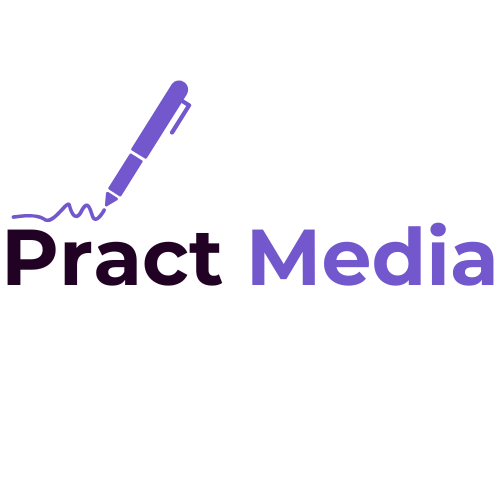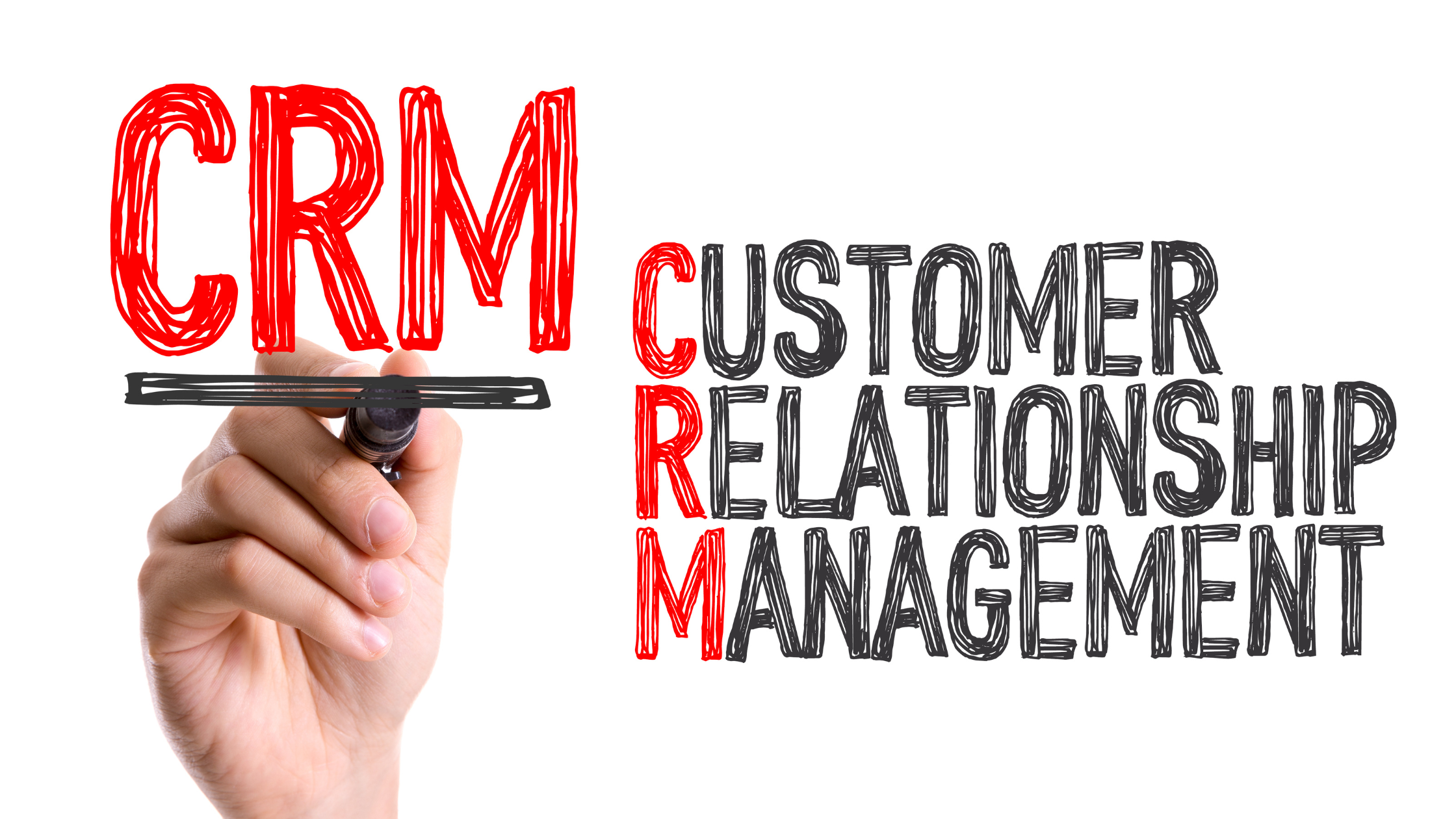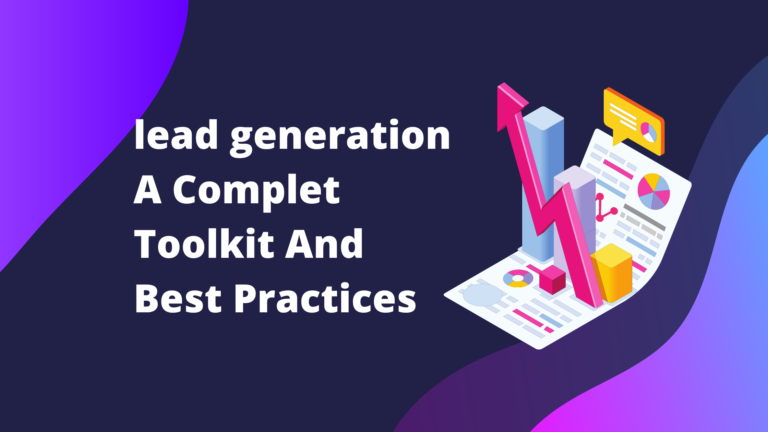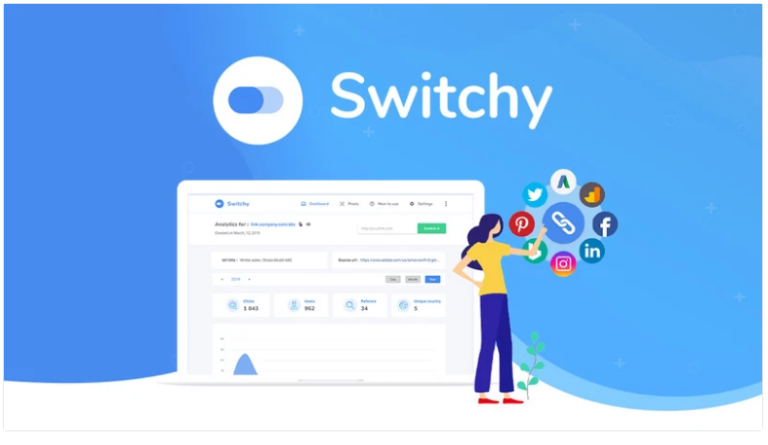What is CRM in Marketing? A Complete Guide for Business
As a small business owner,
I know how hard it is to manage customer relationships.
It’s also tough to keep up with the fast-changing market.
CRM is now a must-have tool that can change your business and boost your marketing.
In this guide, we’ll dive into What is CRM in marketing.
We’ll cover the basics, its evolution, and its essential parts.
This will help you better understand and use CRM to connect with your customers.
This article will give you the necessary tools, whether you are new to CRM or looking to improve your strategy.
CRM is a powerful tool for every team in your business.
As we explore further,
you’ll see how it can make your operations smoother, improve customer service, and help you make better decisions.
All of this will help your marketing efforts grow.
Understanding CRM Fundamentals and Their Role in Modern Business
Customer Relationship Management (CRM) has grown from simple contact management to a complex system.
It now integrates many business functions.
At its heart, CRM aims to improve your sales funnel,
analyze customer data, and segment your audience for a personalized experience.
The Evolution of Customer Relationship Management
CRM has changed a lot over the years.
It’s moved from essential contact databases to powerful platforms that help with sales, marketing, and customer service.
Cloud-based CRMs like HubSpot, Salesforce, and Zoho are famous for their ease of use and accessibility.
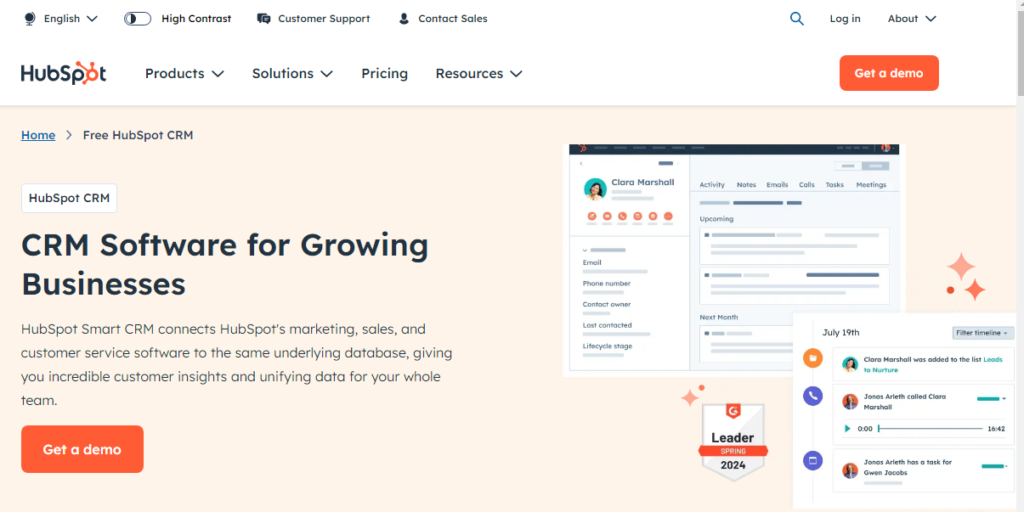
On-premises systems offer more control over security and administration.
Open-source CRMs, such as Bitrix24 and SugarCRM,
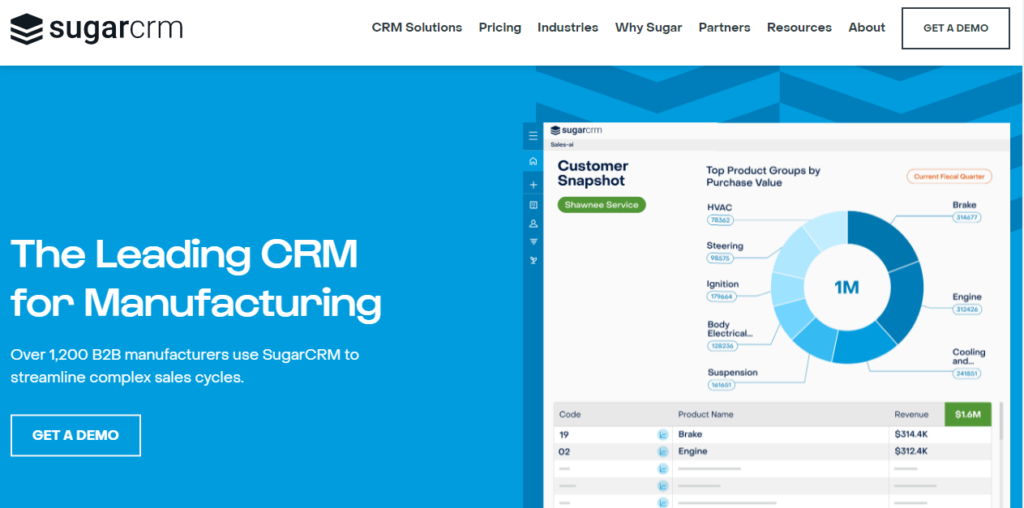
allow for customization and social media integration without extra cost.
Core Components of CRM Systems
Today’s CRM systems have features like contact management,
sales automation, marketing automation, and customer service tools.
They also use AI and geolocation to automate tasks,
predict customer behavior, and run targeted marketing campaigns.
How CRM Transforms Business Operations
CRM systems centralize customer data, allowing businesses to personalize interactions and optimize sales processes.
They also improve customer experience across different channels.
CRM analytics and reporting give insights for making data-driven decisions.
Lead management and HR management functions make operations smoother and boost employee productivity.
CRM’s role in business has become more critical as customer expectations change.
CRM allows companies to better manage customer interactions,
improve their sales funnel, analyze data, and offer personalized experiences,
which leads to customer loyalty and business growth.
What is CRM in Marketing?
CRM, or Customer Relationship Management, is pivotal in today’s marketing.
It’s about how businesses manage their interactions with customers.
The aim is to build better relationships, keep customers loyal, and increase long-term value.
Marketing CRM uses customer data for targeted campaigns.
Marketers learn what customers want and how they behave.
This helps them create customer-led marketing that speaks to their audience, boosting engagement and customer value over time.
CRM marketing can raise Customer Lifetime Value by 33% on average.
CRM platforms help manage the customer journey.
They offer tools for lead generation, scoring, and analytics.
CRM makes marketing efforts more effective by integrating with various channels.
This approach gives customers a smooth experience across all touchpoints.
CRM helps businesses better understand their customers,
improve marketing, and build stronger, more profitable relationships.
Essential Features of Marketing CRM Platforms
In today’s fast-paced marketing world, CRM platforms are essential for businesses of all sizes.
They help marketers keep customers engaged,
offer personalized experiences, and manage the customer journey from start to finish.
Contact Management and Data Organization
At the heart of a good CRM is its ability to manage and organize customer data.
These systems let you store and view detailed customer information, such as contact details and purchase history.
This helps you understand your customers better, making your marketing more targeted and effective.
Campaign Management Tools
Marketing CRM platforms come with tools for managing campaigns across different channels.
You can plan, run, and track your marketing efforts,
from emails to social media.
These tools help you engage with customers better, improve retention, and grow your business.
Analytics and Reporting Capabilities
The real strength of a marketing CRM is its analytics and reporting.
These platforms give you insights into how customers behave and your campaigns perform.
Using this data, you can tailor your marketing to meet customer needs, creating more substantial, loyal relationships.
“Implementing a robust CRM system is crucial for businesses that want to stay ahead of the curve in today’s competitive landscape.
By harnessing the power of these platforms, you can streamline your marketing efforts, enhance customer retention, and drive sustainable growth for your organization.”
Benefits of Implementing CRM in Your Marketing Strategy
Adding a customer relationship management (CRM) system to your marketing plan brings many benefits.
It helps you understand your customers better,
allowing you to give them personalized experiences.
This builds customer loyalty. You can also use CRM to effectively target your audience,
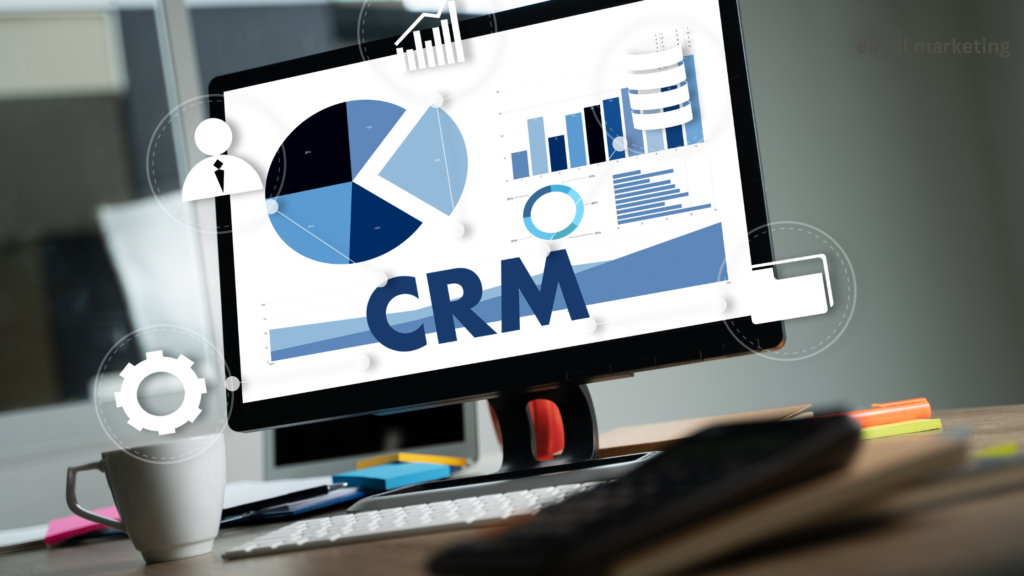
leading to more engagement and sales.
CRM makes it easy to create personalized experiences for your customers.
It gathers data from all interactions, giving you a complete picture of what they like and buy.
This lets you send messages and offers that speak to them, making them feel closer to your brand.
CRM also helps you make smarter marketing choices with data-driven marketing.
You can see your campaigns’ performance and determine the most valuable customers.
This way, you can improve your marketing, use resources, and grow your business.
Using CRM in your marketing is a smart move that can pay off big time.
It helps you better understand your customers, personalize your approach, and make decisions based on solid data.
This leads to happier customers, more sales, and a more robust business for the long haul.
CRM Marketing Automation: Streamlining Customer Interactions
Using CRM and marketing automation is critical.
It helps companies to improve customer engagement and growth.
These tools let marketers automate tasks, personalize messages, and better care for leads.
Workflow Automation
CRM marketing automation makes it easy to set up workflows.
These workflows can start actions based on what customers do and like.
This means businesses can send the right message at the right time,
making customers happier and more engaged.
Lead Scoring and Nurturing
With lead management in your CRM, you can sort prospects by how interested they are.
Marketing automation helps with lead scoring and nurturing.
This allows your sales team to focus on the best leads and help them through the buying process.
Personalization at Scale
CRM systems with advanced customer engagement features let marketers personalize content and offers.
They use customer data and insights to make every interaction unique,
building stronger relationships and increasing conversion rates.
By combining CRM and marketing automation,
businesses can smoother customer interactions, better manage leads, and offer personalized experiences,
keeping their target audience engaged and loyal.
Customer Data Analysis and Segmentation Strategies
In today’s fast-paced marketing world, using customer data is vital.
CRM systems help you unlock valuable insights,
which lets you create targeted campaigns that speak to your audience.
By using behavioral segmentation and predictive analytics, you understand your customers better.
You can guess what they might like next.
This way, you can make your marketing more personal and practical.
Good customer segmentation means you can focus on specific groups based on who they are,
what they buy, or how they interact with your brand.
This approach makes your marketing more personal, which makes customers happier and more likely to buy.
CRM systems have advanced analytics that help find patterns in your customer data.
Looking at website visits, social media activity, or past purchases can change your marketing.
“The efficient use of CRM tools for customer segmentation can lead to better email open rates and overall campaign success.”
When you match your messages with what your customers want, you build stronger relationships,
which are more profitable for your business.
Using CRM for deep customer data analysis and segmentation is a big step for businesses today.
It lets you better understand your customers and offer them what they want, which leads to loyalty and growth.
Unlock your customers’ potential and see your marketing efforts thrive.
Integration of CRM with Marketing Channels
Your success depends on connecting with customers in many ways.
Modern CRM systems work well with different marketing channels.
This gives you a complete view of how customers interact with you.
This approach lets you make marketing plans that work across all channels.
You can send the same message and offer a consistent experience to every customer.
Email Marketing Integration
Email is still a vital tool for marketers.

It lets you see who opens your emails and clicks on links,
which helps you improve your campaigns and attract more customers.
You can send messages that speak to your audience by linking your CRM with email marketing tools.
This helps grow relationships with people who might become customers.
Social Media Management
Social media is vital for communicating with customers.
CRM systems can connect with sites like Twitter, Instagram, and YouTube,
allowing users to keep up with what others say and respond quickly.
This multichannel marketing approach helps you communicate better with your customer touchpoints,
You are making your marketing more integrated and effective.
Website and E-commerce Integration
Linking your CRM with your website and online stores gives you insights into what customers do online.
You can see what they like and what they buy.
This helps you improve their experience and offer them things they’ll want.
You get a complete picture of your customers by linking CRM with marketing.
This lets you give them unique, personal experiences,
which helps build loyalty and grow your business.
Customer Lifecycle Management Through CRM
Effective customer lifecycle management is critical to a successful marketing strategy.
CRM plays a significant role in this. It lets you track and manage your customers’ journey,
From the first awareness to loyalty and advocacy after purchase.
Using CRM data, you can create targeted campaigns.
These campaigns meet your customers’ specific needs and interests at each stage, making your marketing more effective.
CRM helps you see and improve the customer experience through customer journey mapping.
You can gather feedback, check satisfaction, and find chances for upselling or cross-selling.
This approach helps build brand loyalty, increase customer lifetime value, and drive business growth.
CRM also works well with marketing channels like email and social media, making it easier to personalize the customer experience.
Connecting these touchpoints offers a unified and engaging experience,
keeping your customers returning.
CRM helps you build loyal brand advocates and reach your company’s full potential.
FAQ
What is CRM in marketing?
CRM in marketing is about managing customer relationships.
It uses strategies, tactics, and technologies to improve loyalty and retention.
The goal is to increase each customer’s value over time.
What are the core components of CRM systems?
CRM systems have several essential parts.
These include contact management, sales automation, marketing automation, and customer service tools.
They help businesses manage customer data and improve interactions.
How does CRM transform business operations?
CRM changes how businesses work by centralizing data and automating tasks.
It helps personalize interactions and optimize sales,
improving customer experiences across channels.
What are the essential features of marketing CRM platforms?
Marketing CRM platforms have essential features.
These include robust contact management and campaign tools.
They also offer advanced analytics for better customer understanding and messaging.
What are the benefits of implementing CRM in a marketing strategy?
CRM brings many benefits to marketing strategies. It improves customer understanding and segmentation.
It also helps deliver timely and relevant messages, leading to loyalty and retention.
How does CRM marketing automation streamline customer interactions?
CRM marketing automation smoothes interactions, automates tasks, and personalizes communications,
leading to better engagement and conversion rates.
How can CRM systems support customer data analysis and segmentation?
CRM systems offer tools for analyzing and segmenting customer data.
Marketers can use these insights to create targeted campaigns,
and advanced platforms even predict customer needs and preferences.
How does CRM integrate with various marketing channels?
Modern CRM systems integrate with email, social media, websites, and e-commerce,
giving a unified view of customer interactions and helping create consistent marketing strategies across all touchpoints.
How does CRM support customer lifecycle management?
CRM is essential for managing the customer lifecycle.
It tracks interactions from awareness to post-purchase support.
CRM tools help design targeted campaigns and collect feedback for improvement.
